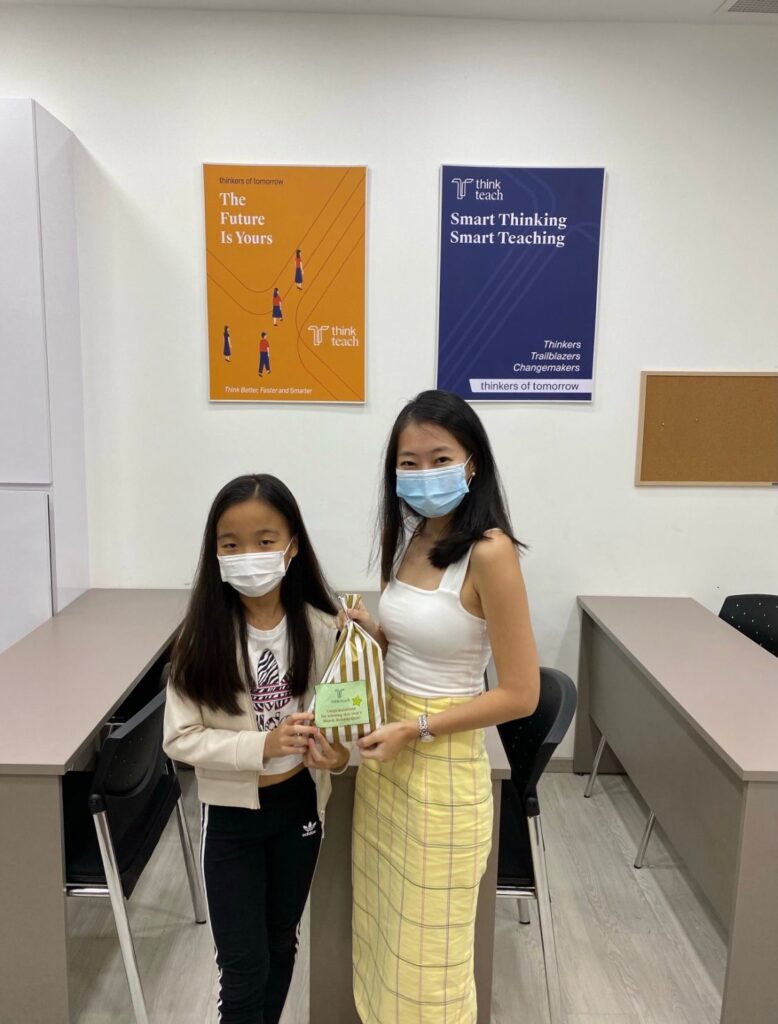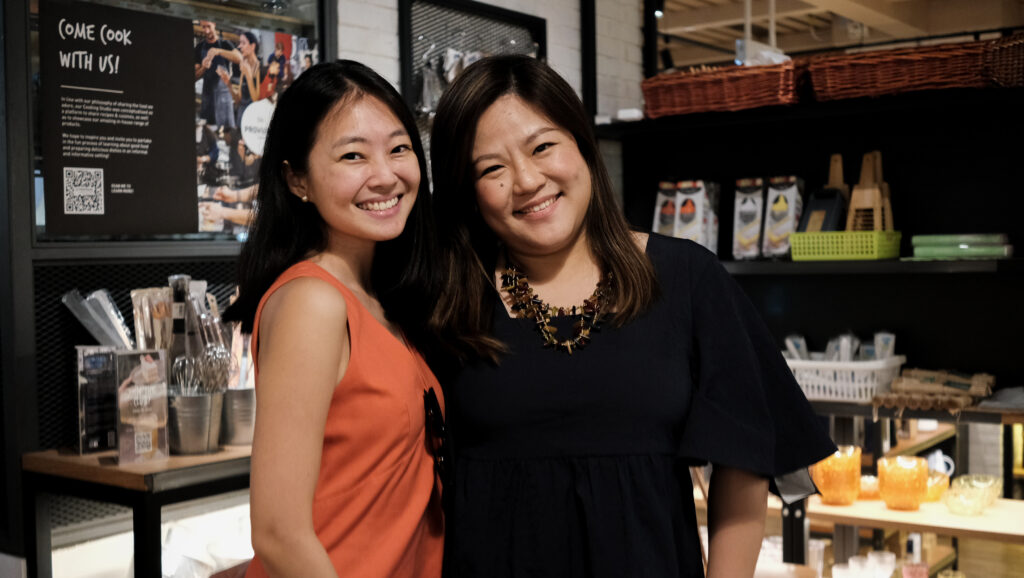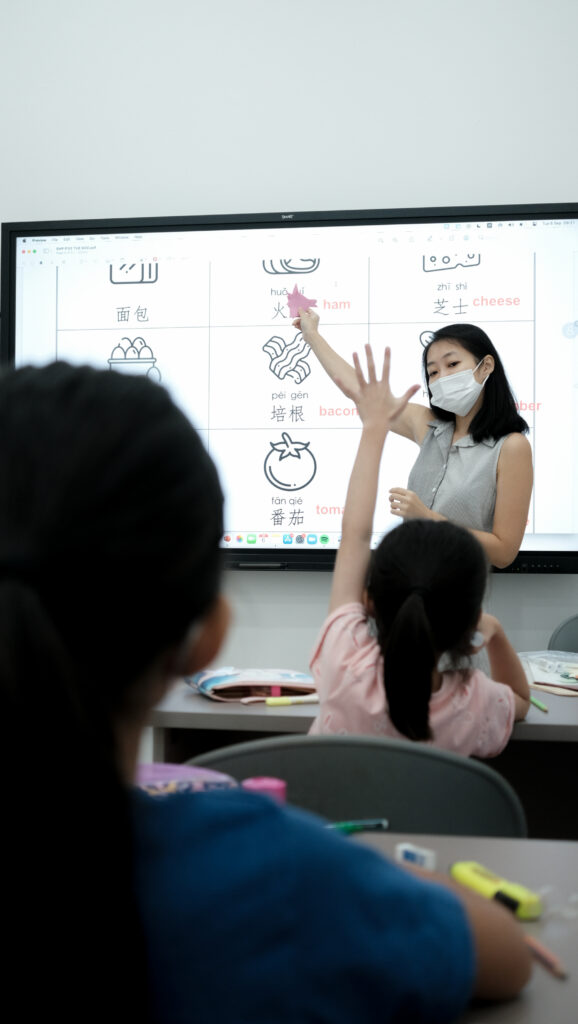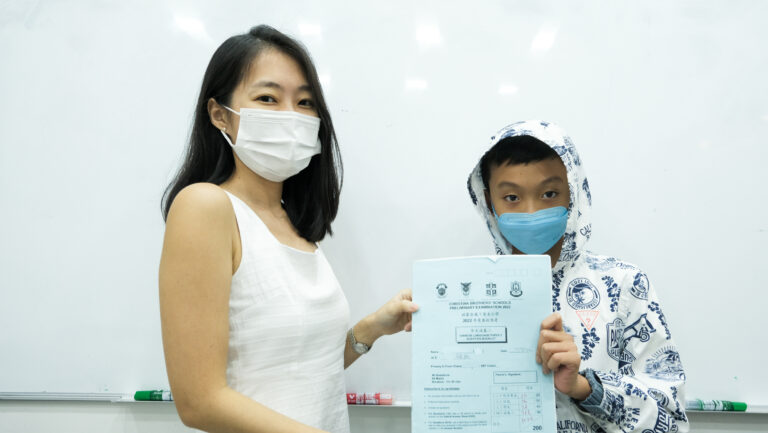Amazing and a true rarity, effectively bilingual individuals like Teacher Li Lin is almost akin to a unicorn in Singapore. She might be our Head of Chinese but Teacher Li Lin is also completely proficient in English. In fact, she was one of only a few Singaporeans who opted for a cross-cultural exchange experience first in China then back in Singapore. On this rarely trodden path, Teacher Li Lin earned a bachelor’s from the prestigious Fudan University in Shanghai followed by a Masters degree from the equally prestigious and renowned National University of Singapore. Upon graduation, Teacher Li Lin joined the education sector, heading the Upper Primary Chinese curriculum team at the Learning Lab before bringing her expertise and experience to us heading Think Teach Academy’s Chinese Department, 鼎育.

In this interview article, we shine the spotlight on Teacher Li Lin. We ask her about her love for the Chinese culture and language and get her to share more about her experience studying in China. We also take the chance to find out why she chose teaching as a career and whether she intends to tap on her English prowess to teach English one day.
Q: Could you tell us more about your experience studying in Shanghai? What was it like and why did you choose to apply for the programme?
I think Chinese culture and history are one of the underappreciated subjects of our time. I developed a passion for them after reading novels when I was young. The opportunity to study in Fudan alongside the best in the world, came in university and I immediately jumped on it. The faculty and students held themselves to the highest standards and I learnt so much that I now apply into my classroom. It widened my world view, strengthened my confidence, and allowed me to build treasured friendships. I will always be happy to have taken that leap of faith.
Q: Did your experience influence your decision to go into teaching?
I would not be here today without the support of many great educators and mentors that I met. I became a teacher so that I can pass on the inspiration that was first gifted to me.

Q: I know this is an often asked question but I want to hear it from you. Why in your opinion is it important to not just learn but excel in Chinese?
Being bilingual today is no longer an advantage but a requirement to stay competitive. At Think Teach 鼎育, I want to build a mindset in our students to go beyond the syllabus, to build the skills and confidence required to excel not just in Chinese, but as a lifelong learner.
Q: So what would say is the level of Chinese of Singaporeans in general and of the students you encounter? Do you think our counterparts in China would be able to understand us?
Our counterparts in China naturally have higher proficiency in Chinese than us and many of them are bilingual as well. Many top programmes in China are taught in English.
To summarise the average student that I come across in general, I would further break down the question into the following parts: Ability to speak — To be improved. Most students face difficulty in articulating themselves clearly with good vocabulary.
Ability to listen — Moderate. Most students are able to comprehend conversations.
Ability to write — To be improved. Most students will need guidance on how to structure their thoughts and arguments into a well written essay.
Ability to read — Moderate. Most students are able to understand words within the syllabus, but will struggle with more advanced vocabulary and phrases.
With a more confident learning attitude towards mastering the language, I do believe Singaporeans have what it takes to be understood more clearly. Therefore, I will advise students to read widely and beyond the curriculum. The interest and confidence to do so starts with being in a safe and encouraging environment that we offer here at Think Teach 鼎育.
Q: You have been heading 鼎育 for a number of years now. What is your vision for 鼎育 and how is that vision of yours seen in the academy’s Chinese programme?
My vision for our programme is to become one of the top Chinese programmes in Singapore where students can grow beyond the classroom and be equipped with real world skills, be effective problem solvers and successful in their future endeavours.
Q: So what would you say is one chief difference between 鼎育 and Chinese in schools and other learning centres?
鼎育 provides a safe space for learning and growth that is not always present in schools and other centres. In my classroom, I emphasise that every student is heard and understood. It is where stronger students can push themselves to be even better and weaker students can feel supported and motivated with our team of dedicated teachers.
Q: On a more personal level, how did you become so proficient in Chinese and English? Do you have any tips to share?
It is different for everyone, but the key to language is to find a medium that interests you. For example, some find it in watching movies and reading subtitles to learn Chinese. I am still learning even till today but what works for me is thinking through topics and conversations in both languages and practising translation with discipline.
Q: This would be a question I am sure parents would be most interested in. When you have kids, how would you ensure they grow up effectively bilingual?
I would teach them with intention, immerse them in the right environment so that the language itself becomes second nature, provide them with the right resources and shower them with adequate encouragement to build confidence in applying the language boldly.

Q: Since it is important to start honing one’s language abilities at a young age, do you have any plans to kickstart a Primary 1 or even Kindergarten level Chinese programme in 鼎育?
This is certainly an idea to explore as we continue to build up the Lower Primary Programme capabilities. We are currently an Upper Primary powerhouse, but it is definitely good to start developing the interest from a young age and something worth exploring in the future.
Q: As you are answering my questions, it is clear that you are extremely comfortable in English. This is very rare for a Chinese teacher. Have you ever thought about teaching both English and Chinese?
I believe students have enough of me in just one lesson☺Perhaps, if my bosses double my salary? Jokes aside, my primary focus is still Chinese because it is what I enjoy and trained to do. I employ bilingualism in my classes so my students can understand the syllabus better.
Q: It is customary that I end every interview with a personal question. Since it’s still early in the year, let me ask you about your goals for the year. What are some of your resolutions for 2023?
I have put off traveling for some time. Now that restrictions are lifted, I hope to visit some new and interesting places this year!




